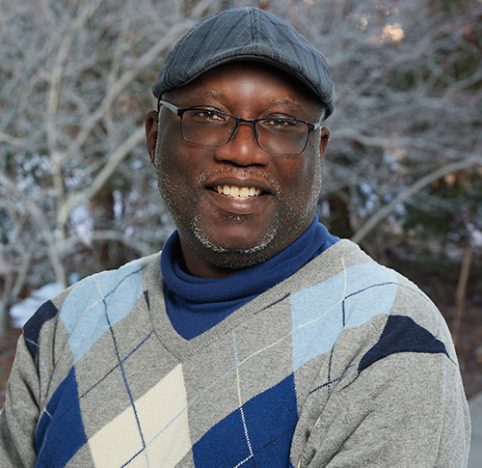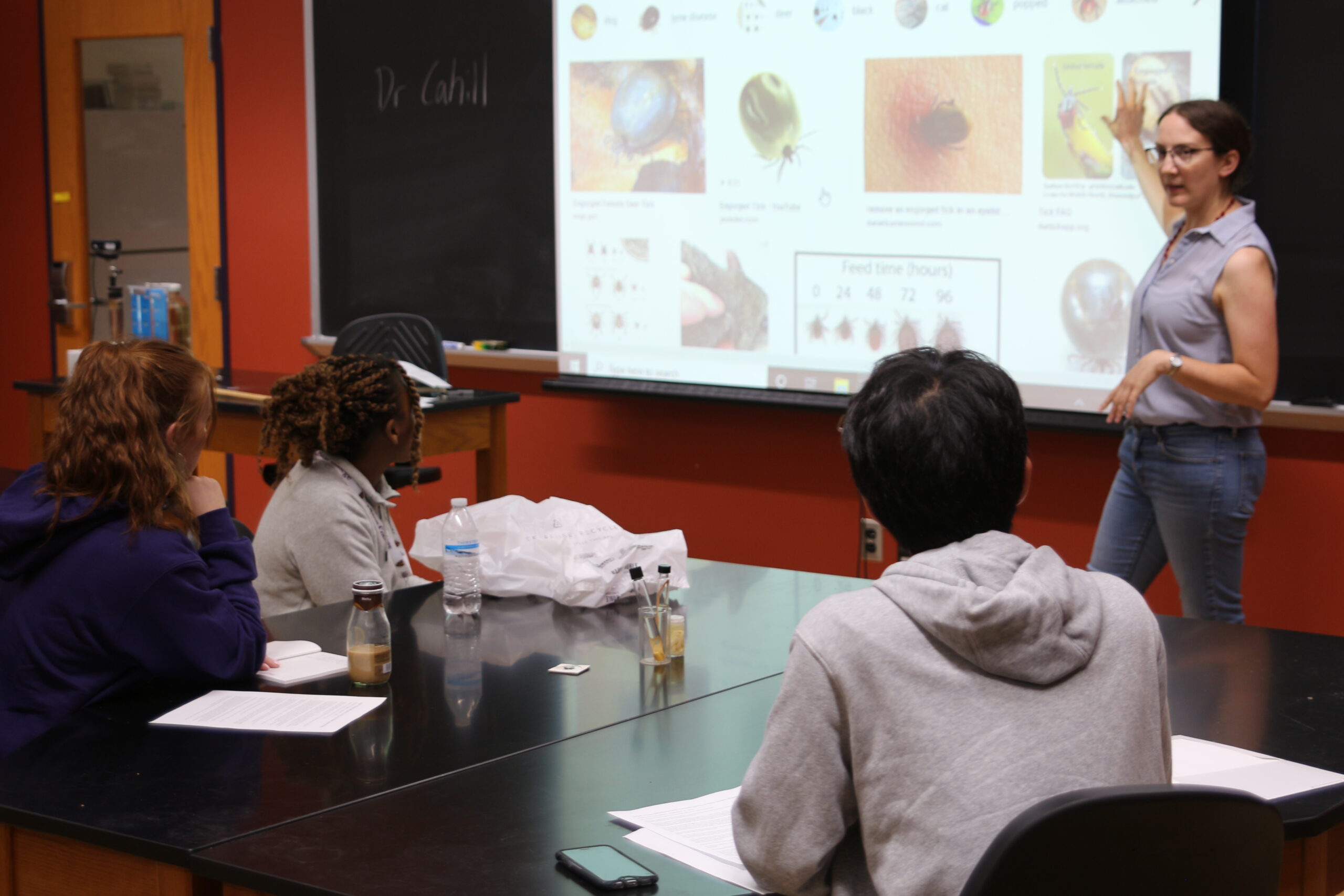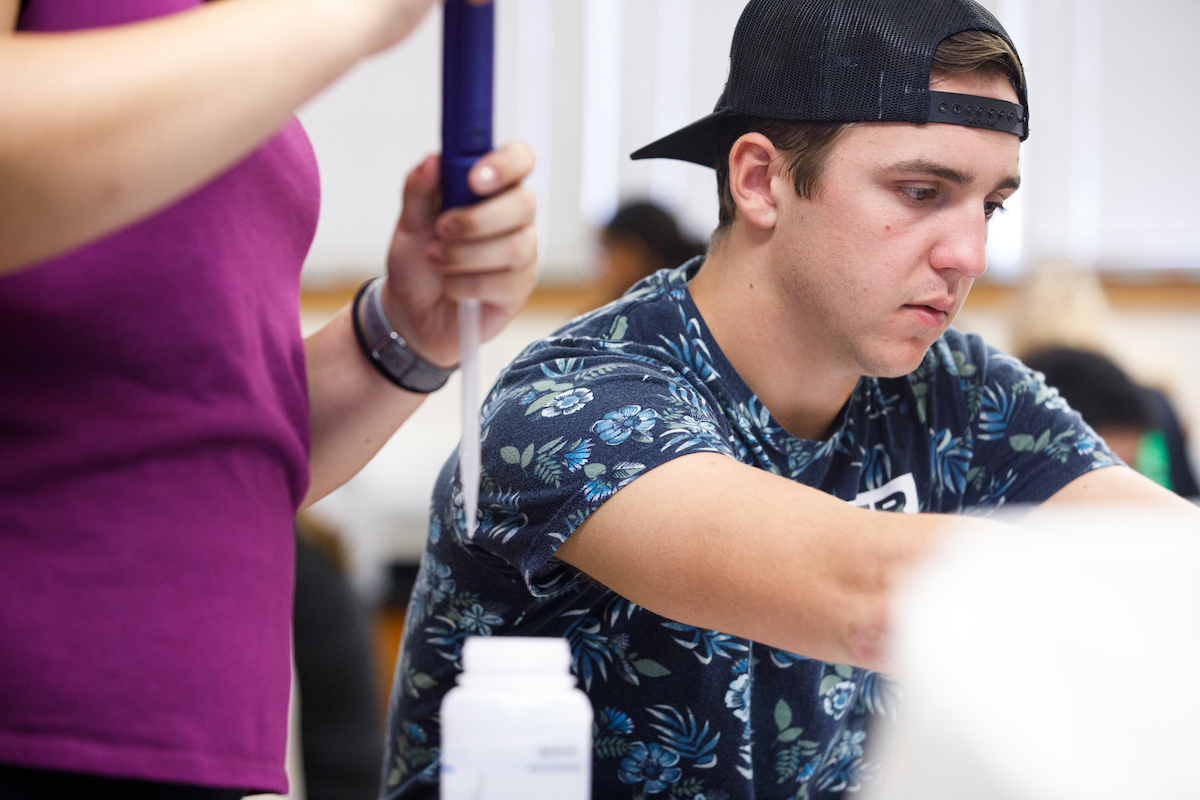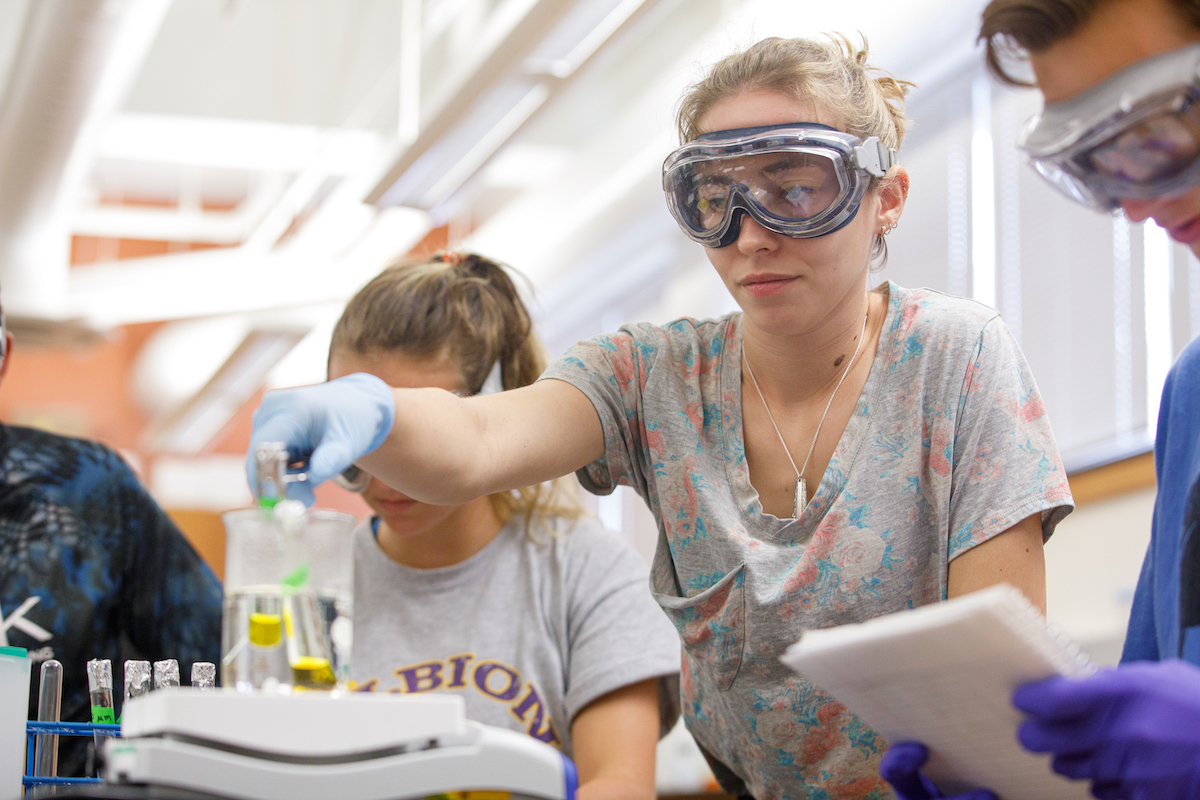Biology Major and Minor
As a biology student, you’ll study life in all forms—from the smallest cells to entire ecosystems. You’ll understand the relationships and mechanisms that tie all life on earth together. You’ll combine scientific knowledge with research and communication skills to prepare for a career in a wide range of exciting fields such as medicine, conservation, academia and more.
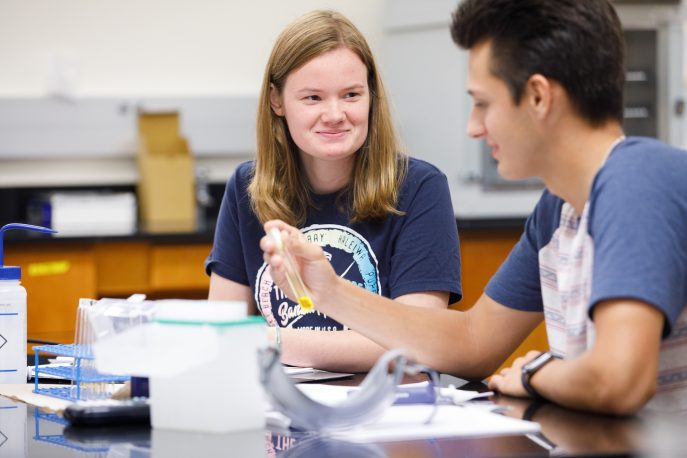
Why Study Biology at Albion?
We have a proven track record of preparing students for rigorous graduate studies and careers. Combine a challenging classroom and laboratory curriculum with close relationships with research faculty. You’ll have all the advantages of a liberal arts education; you’ll build both a hard science foundation with a broad knowledge base and a versatile analytical skillset.
What Will You Learn as a Biology Major?
You’ll understand and employ the scientific method. You’ll test hypotheses, design experiments, review existing literature and complete statistical analyses.
You’ll build a knowledge base in fundamental areas of biology: ecology, evolution and biodiversity, cell and molecular biology, and genetics.
You’ll tailor your curriculum to fit your passions and professional goals, taking advanced courses and delving deep into topics like medicine, zoology, neuroscience and many more.
Teacher Certification with a Biology Major
Interested in teaching? Pair your Biology major (or minor) with an Education Concentration to be eligible for your Michigan Department of Education teaching certificate.
Highlights
Internships
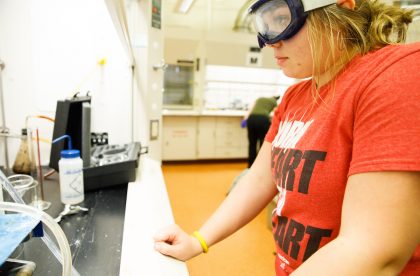
Spend a semester or summer gaining real-world experience in a field you’re interested in. Biology students often intern in medicine, dentistry, veterinary medicine, nursing, physical therapy, cardiopulmonary respiratory therapy, optometry, environmental biology, greenhouse management, laboratory technician, and natural resources.
Research
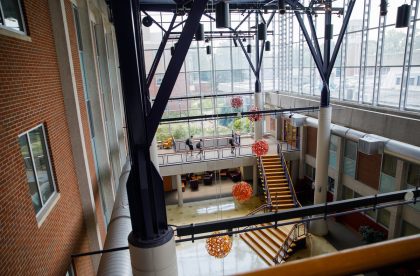
Work closely with faculty members on their research or propose your own. Current faculty research topics include cell division, breeding success in birds, evolution of plants, microbial community composition in bodies of water, human inflammatory and angiogenic diseases, DNA repair and more.
Scholarships
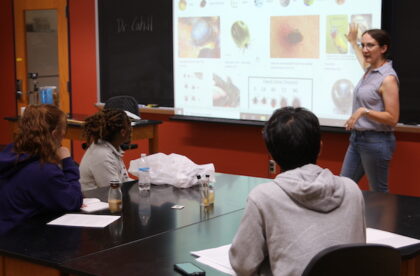
Each year, we award scholarships and prizes specifically to exceptional biology students. Premedical scholarships are also available to qualifying biology majors.
Whitehouse Nature Center
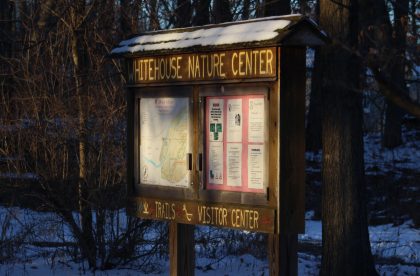
We call it the greenest classroom on campus, and it’s the only one with a river running through it. Access 140 acres of living laboratory, including five miles of trails, more than 400 plant species, 170 bird species, a wildlife observation room and live exhibits of local reptiles and amphibians.
Careers & Outcomes
As a biology student, you’ll have a wide array of post-graduate options available to you. Faculty advisors will help you craft the curriculum that best aligns with our goals. Many of our students pursue post-graduate studies leading to college and university teaching and research positions. Others find fulfilling careers in industry, government agencies, natural resources and fisheries, nature centers and more. Below are examples of some of the professions our students choose, as well as graduate programs our students have recently attended.
Professions
- Medicine
- Education
- Physical and Occupational Therapy
- Health Psychology
- Genetic Counseling
- Epidemiology
- Public Health Administration
- Dietician
- Pharmacology
Graduate Programs
- Duke University School of the Environment
- Harvard University - Medical Sciences Department
- Michigan State University - Biology, Plant Pathology, Zoology
- Ohio State University - Microbiology
- Sarah Lawrence College - Genetic Counseling
- University of Michigan - Public Health, Microbiology/Immunology Program, Nutrition
- University of Wisconsin - Madison - Molecular Biology, Medical Microbiology
- Washington University - Biochemistry
- Yale University - Molecular Biology
